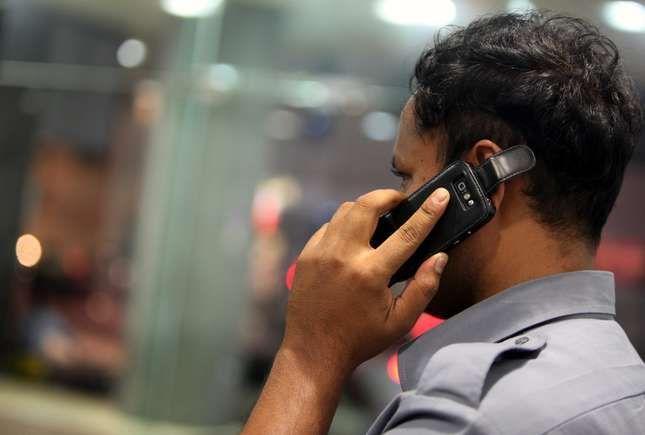New Act allows Government to tap our phones

(fz.com) – Alarmingly, section 6(6) treads directly on Article 5 of the Federal Constitution no less – which deals with the fundamental liberty of a person – by asserting that it is to have effect notwithstanding anything inconsistent with Article 5.
While the European Union (EU) raged against the US last week following revelations that the National Security Agency (NSA) had tapped the phones of 70 million people across the continent, including German Chancellor Angela Merkel, back home, the Government is trying to sneak in laws that will allow it to spy on its own citizens legally.
On Oct 23, the country saw the tabling in Parliament of the amendments to the Security Offences (Special Measures) Act 2012 (SOSMA).
While, on the surface at least, the amended clauses that were tabled may not seem major, they are said to highlight a significant threat to privacy through the wielding of SOSMA, a legislation instituted to replace the Internal Security Act (ISA) which was repealed in April 2012.
Under the bill, two small amendments are to be made to sections 6 and 30 of the act’s Malay language text, so as to be consistent with its English language text.
One needs to read just the heading of section 6 to understand its implication.
Titled “Power to intercept communication”, Section 6 gives the Public Prosecutor the power to authorise any police officer to intercept any postal article, as well as any message or conversation being transmitted by any means at all, if he or she deems it to contain information relating to a “security offence”.
It also gives the Public prosecutor the power to similarly require a communications service provider like telecommunications companies to intercept and retain a specified communication, if he or she considers that it is likely to contain any information related to “the communication of a security offence.”
Additionally, it vests the Public Prosecutor with the power to authorise a police officer to enter any premises to install any device “for the interception and retention of a specified communication or communications.”
Possible tapping on detractors
SUCH a scope of what the government can do in terms of intercepting people’s messages is troubling – at least to those who understand its implication.
In particular, there are those who are anxious that it can be used to tap on detractors and political opponents.
“Due to the vagueness and broadness of the ground for executing interception, this provision is surely open to abuse especially against political dissent,” said Bukit Mertajam MP Steven Sim.
Stressing that the act does not provide any guidelines on the “interception”, he added: “The government can legally ‘bug’ any private communication using any method, including through trespassing to implement the bugging device and there is not stipulated time frame such invasion of privacy is allowed”.
“If that is not enough, service providers such as telcos and internet service providers are compelled by Section 6(2)(a) – which is now being amended to give a wider scope of meaning – to cooperate in the act of interception.”
‘BN’s Watergate in the making’
SIM has even described the move as the ruling Barisan Nasional’s own “Watergate” in the making – in reference to the infamous American scandal of the 70s in which phone lines of political opponents of then president Richard Nixon were actively wire-tapped with the complicity of the White House.
Alarmingly, section 6(6) treads directly on Article 5 of the Federal Constitution no less – which deals with the fundamental liberty of a person – by asserting that it is to have effect notwithstanding anything inconsistent with Article 5.
Sim also pointed to Section 24 of SOSMA, which exempts the police or any person from answering questions regarding the interception, including its methods.
“This would definitely jeopardise the interests of the accused who is not able to challenge the authenticity of the evidence obtained through interception,” he said.

